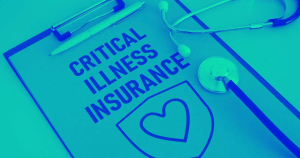Disability insurance may not be something you enjoy thinking about—but ignoring it could leave you financially vulnerable to unexpected illnesses or injuries. Here’s why this coverage is an essential part of your financial plan.
1. Your Income Supports More Than Just You
If others depend on your income—family members, roommates, or partners—losing it even temporarily can have a major impact. Social Security disability benefits aren’t available for short-term absences, and qualifying can be complex. Without coverage, a long-term illness or injury could deplete savings and disrupt your lifestyle.
2. Disability Insurance Replaces Lost Income
Disability insurance is designed to replace a portion of your paycheck if you can’t work. This income helps cover essential expenses like:
-
Rent or mortgage
-
Utilities and groceries
-
School tuition
-
Car payments
This ensures you can maintain your standard of living while focusing on recovery.
3. Most Long-Term Disabilities Are Caused by Illness
Surprisingly, most long-term work absences are due to illnesses—not accidents. According to the Council for Disability Awareness, conditions like back injuries, cancer, and heart disease make up the majority of long-term disability claims.
4. Your Risk of Disability Is Higher Than You Think
Data from the U.S. Social Security Administration shows that over 25% of 20-year-olds will experience a disability that keeps them out of work for at least a year before retirement. Securing disability insurance early—while young and healthy—reduces costs and ensures coverage when you need it most.
5. Protect 60–80% of Your After-Tax Income
A good rule of thumb is to aim for coverage that replaces 60–80% of your after-tax income. This helps you meet essential living expenses during a disability. You can use online calculators to estimate the right coverage amount for your personal situation.
6. Know Your Employer Coverage
Many employers offer disability insurance as part of their benefits package. However, group benefits may not be enough due to coverage limits or exclusions. Check carefully what’s included and consider supplemental insurance if necessary.
7. Choose a Financially Strong Insurance Provider
Disability insurance is a long-term commitment. When buying a policy, it’s important to select a company with financial stability, experience, and a solid reputation to ensure you receive benefits when needed. Consulting a financial professional can help you determine the right plan for your financial goals.
Disability insurance isn’t just another policy—it’s a financial safety net that protects your income, your lifestyle, and your family’s well-being when life takes an unexpected turn.







